
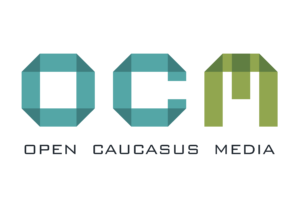 A new poll reveals that Georgians are most anxious about economic issues and the top issue remains to be jobs, while very few of them believe that their household is now better-off than it was in 2012, when the government changed. The poll also revealed declining numbers of Georgians supporting EU and NATO membership, though the overall number remains high.
A new poll reveals that Georgians are most anxious about economic issues and the top issue remains to be jobs, while very few of them believe that their household is now better-off than it was in 2012, when the government changed. The poll also revealed declining numbers of Georgians supporting EU and NATO membership, though the overall number remains high.
‘In multiple polls for years now, Georgians have consistently expressed concern about the country’s and their economic well-being, and they are not feeling any relief or improvement’, Laura Thorton, National Democratic Institute’s (NDI) Senior Director said on Monday, when the poll was published.
Jobs and Unemployment
Of those polled, 66% of Georgians consider themselves to be unemployed. This number has fluctuated between 60 to 75% since 2010. The most recent poll was conducted from 4 November to 4 December 2016. The figure for unemployment has worsened since the previous poll (June 2016) at 63%.
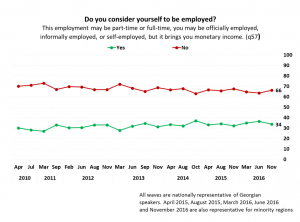
Jobs (58%), rising prices and inflation (38%), poverty (30%), territorial integrity (27%) and pensions (24%) are the most important issues for Georgians, according to the poll. These have not changed much since 2009, other than territorial integrity, which before 2016 placed consistently among the top three issues.
Only 32% believe that Georgia is heading in the right direction, as opposed to 27% who believe the opposite. Another 26% believe that Georgia is not changing at all, while the remainder do not know.
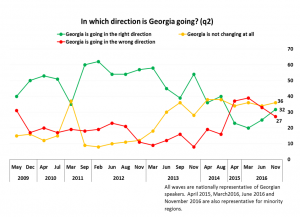
NDI asked respondents about their income for the past month, revealing that only 6% of Georgians claim to have a household income of more than ₾1200 ($440); 8% say their income was from ₾800–1200 ($293–440); 20% from ₾400–800 ($146–293); 23% from ₾261–400 ($95–146); 19% from ₾151–260 ($55–95) and 5% with less than ₾150 ($55) a month.
Women in politics
A majority of Georgians believe that women are equally as capable as men in decision-making, but they also realize that difference in access, resources, time and culture affect their ability to participate equally with their male counterparts.
‘Parties have dragged their feet on the issue of women’s political participation, as we see clearly from the composition of candidate lists in the last election’, Thorton remarked, ‘The Georgian people, however, are ahead of their leaders and are clearly in favor of more concrete measures to ensure more equal representation’.
In the new Parliamentary Assembly of Georgia, there are 23 female MPs. According to the poll, 52% of Georgians think that this number is too small, 39% think it is enough, and 4% believe that the number is too high. 56% of respondents expressed a belief that if the number of women MPs increased, it would have a positive impact on Georgia, with 27% believing it would have no impact at all and 8% stating that it would have a negative impact.
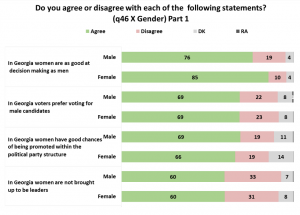
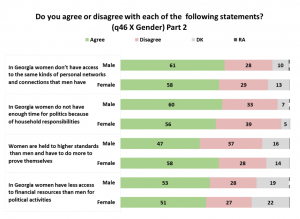
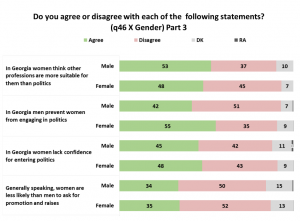
Euro-Atlantic integration
Georgians are steadily committed to joining the European Union and NATO. The authors remark that exceptions are found among minority settlements, in which less than half of the population support these goals. Another factor is age, with support more than 15% higher among younger respondents than older ones.
The Georgian government’s stated goal of joining NATO is supported by 61% of Georgians, down from 70% in November 2015.
Joining the EU is supported by 72% of Georgians though this has also fallen from 77% in March 2016.
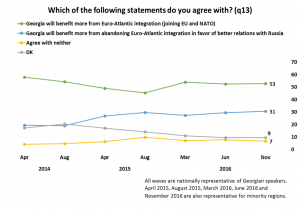
NDI interviewed 3,141 adults from throughout Georgia, excluding Abkhazia and South Ossetia. The margin of error for the poll is ±1.8%.







